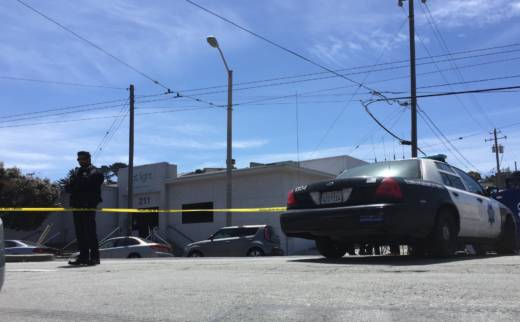“Since 2006, there’s been essentially total secrecy around police investigations into serious incidents like police shootings and discipline of even extremely serious conduct, like that addressed in this bill,” said Peter Bibring, one of the architects of SB 1421 and the police practices director for the ACLU of Southern California.
Bibring said the new law “ensures that Californians actually have a right to know how their police departments investigate deadly shootings and other serious uses of force, and how they deal with serious misconduct.”
State-level police and prosecutor organizations widely opposed the bill, with the exception of the California Police Chiefs Association, which flipped from opposition to support as the bill moved through the Legislature.
“We as police chiefs want to ensure that the privacy of our officers is protected, much like in many other professions,” said Morgan Hill Police Chief David Swing, president of the association. “At the same time, we also want to ensure that we have the community’s trust. We think that SB 1421 does a lot to show the depth of our investigations, and truly just how much we as a profession work to ensure that serious uses of force and other matters are thoroughly investigated.”
The Peace Officers Research Association of California (PORAC), a statewide law enforcement union and advocacy group, opposed the bill. PORAC President Brian Marvel said his organization insisted that police misconduct investigations — and the appeals that can follow findings that officers broke the rules — be more consistent across the state before supporting more transparency around findings of misconduct.
But when the police chiefs came out in support, “it doomed our cause,” Marvel said.
“It would have been nice if we could have stayed on the same page,” he said. “But I understand what the chiefs want and what we want might not always be the same.”
Skinner said past attempts to open up police misconduct files helped build momentum for SB 1421’s eventual passage. She also credited its passage to a steady increase in public awareness and, in some cases, outrage over a lack of information about deadly shootings and officer discipline.
“There’s such an increased awareness and concern by the public around use of deadly force by law enforcement and questioning whether our law enforcement agencies are adequately investigating incidents,” she said. “With this narrow set of records we can begin to rebuild that trust, and it’s great that we’re lifting this 40-year block of secrecy.”
Deadline for Release of Body-Camera Footage
The release of video and audio recordings proved more divisive, but the governor also signed a bill that will make some police body-camera footage publicly available.
That law, Assembly Bill 748 by state Assemblyman Phil Ting (D-San Francisco), sets a 45-day deadline for police departments to release footage of “critical incidents” — shootings or any use of force resulting in great bodily injury — in most cases. Police departments can withhold footage for longer periods only by justifying why public release would taint an ongoing investigation or generally do more harm than good.
“Public access to body-camera footage is necessary to boost confidence and rebuild trust between law enforcement and the communities they serve,” Ting said in a written statement.
The California Police Chiefs Association and other law enforcement groups opposed the bill, arguing it would burden smaller agencies to have to review and redact hours of body-camera footage, with little public benefit.
“It would not surprise me if over a period of time we see a decline in the number of new agencies who are adopting body-worn cameras,” association President Swing said, “and possibly some agencies that currently have body-worn cameras that might pull away from the program if the time constraints and the resource demands become too onerous.”
Bibring, with the ACLU of Southern California, said the bills together will transform policing in California.
“Continuing incidents, continuing shootings, where there seems to be no accountability, has made it clear to the general public that this isn’t just an incident or two that involves maybe officers who are acting out of policy or out of control,” Bibring said. “This is really a systemic problem that stems from the laws that are in place, the fact that there is such secrecy around policing that makes it impossible to hold departments accountable.”
“I think the public increasingly has an understanding that these issues are systemic, and that’s leading to systemic changes like the legislation that passed this year,” Bibring added.
The law opening records on deadly shootings and sustained findings of certain types of misconduct takes effect on Jan. 1, 2019. Ting’s body-camera bill takes effect on July 1, 2019.
